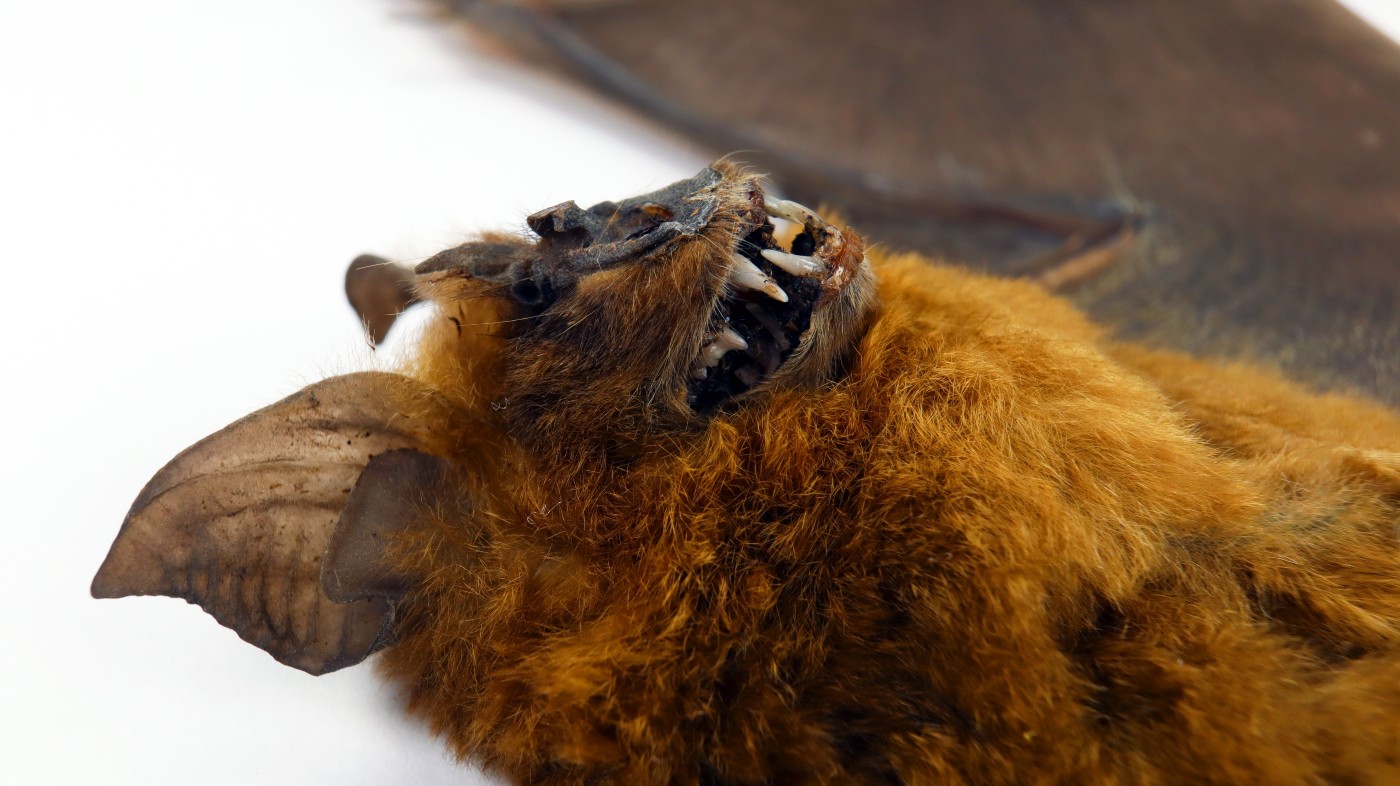The 'frivolous' trade in taxidermied bats
Painted woolly bats are being sold online: bad news for the species – and humans

A free daily email with the biggest news stories of the day – and the best features from TheWeek.com
You are now subscribed
Your newsletter sign-up was successful
They may seem like the "perfect Halloween emblem" but the growing trend of using stuffed bats as "home décor" is driving the embattled species towards a new crisis, according to a report.
Painted woolly bats are being sold on Amazon, eBay and Etsy in a "frivolous" and illegal online trade, said The Times, and the trade could pose a danger not only to bat species, but also to humans and the climate.
'Black market'
A new study in the European Journal of Wildlife Research revealed a "flourishing black market" in stuffed and mounted bats sold as Halloween decorations that has gone "largely unnoticed", said The New York Times (NYT).
The Week
Escape your echo chamber. Get the facts behind the news, plus analysis from multiple perspectives.

Sign up for The Week's Free Newsletters
From our morning news briefing to a weekly Good News Newsletter, get the best of The Week delivered directly to your inbox.
From our morning news briefing to a weekly Good News Newsletter, get the best of The Week delivered directly to your inbox.
They are sold online in "frames, jars, coffins, jewellery, and more", said The Verge, in a wild animal trade that has "flown under the radar" but "poses risks to the bats and potentially to the people who handle them".
The researchers found a total of 856 bats listed for sale online, a quarter of which were Kerivoula picta, a species from Asia known as the painted woolly bat or fire bat because of its distinctive orange fur and striped wings.
The majority of listings were from sellers based in the US. Etsy accounted for half of the listings, eBay for 45% and Amazon for 5%. Many sellers said that their bats were sustainably sourced or bred in captivity, with one even claiming that purchasing from them helps to "prevent extinction and support the fight against deforestation and habitat destruction worldwide".
But these claims are "rubbish", Chris Shepherd, a co-author of the study and executive director of Monitor, a wildlife trade research group that focuses on lesser-known species, told the NYT. It's actually a "frivolous and purely luxury trade", he added.
A free daily email with the biggest news stories of the day – and the best features from TheWeek.com
Researchers spotted signs of lactation in some female bats, indicating that they had young when they were harvested to supply the consumer demand.
"Seeing that, I would imagine, 'Well, here's this female that was collected – where's her pup?... It was probably crying for its mother," Joanna Coleman, co-lead author of the study and an assistant professor of biology, told The Verge.
Hollywood myths
Humans could be in danger from the trade as there is a "small risk of spreading disease", said The Verge. Although it's "unlikely" that the buyer of a stuffed bat would catch something, there's greater risk for whoever harvested that bat in the wild.
But the main threat is to bat populations. As more and more painted woolly bats are "hung on walls", the "dwindling population dangling in wild roosts faces wipe-out" unless authorities introduce protections "with urgency", said The Times.
Bat species around the world already face "myriad threats from climate change, habitat loss, persecution, wildlife disease, collisions with wind turbines and more", said the NYT.
Bats play an important role in agriculture, by "dispersing seeds, pollinating plants, and controlling pest populations", said The Verge.
So, "to see bat populations further threatened purely for decorative and aesthetic purposes is very concerning," Liam McGuire, an ecologist at the University of Waterloo in Ontario, who was not involved in the research, told the NYT.
Conservationists are asking "well-meaning bat enthusiasts" seeking a spooky aesthetic in their home not to purchase items containing real bats, bat parts, or skeletons", said The Verge. "After all, there are also plenty of faux bats on the market to collect."
Chas Newkey-Burden has been part of The Week Digital team for more than a decade and a journalist for 25 years, starting out on the irreverent football weekly 90 Minutes, before moving to lifestyle magazines Loaded and Attitude. He was a columnist for The Big Issue and landed a world exclusive with David Beckham that became the weekly magazine’s bestselling issue. He now writes regularly for The Guardian, The Telegraph, The Independent, Metro, FourFourTwo and the i new site. He is also the author of a number of non-fiction books.